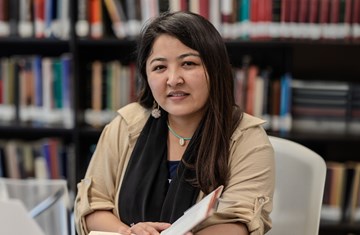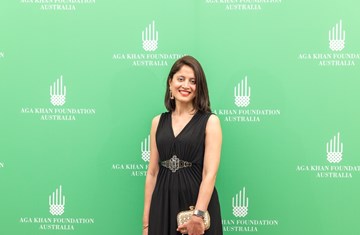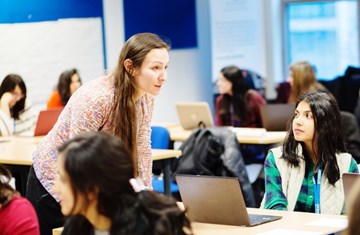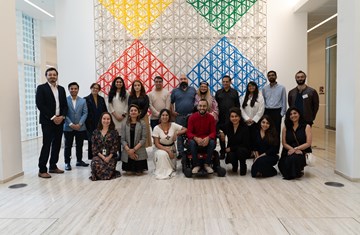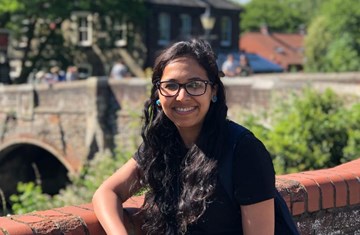IIS Alumni Explore the Theme of Shari‘a in Contemporary Times
Thirty IIS alumni from across Asia, Europe and North America came together in Istanbul, Turkey, in November 2011 to discuss the theme Contested Landscape: Shari‘a Today. The Academic Seminar provided an opportunity for the alumni to engage with scholars specialising in the field and discuss shari‘a and its relevance to ethical, intellectual and social questions in contemporary contexts.
Mr Shiraz Kabani opened the session by highlighting how the annual Academic Seminars provide an opportunity for alumni to explore topics of contemporary relevance whilst contributing to their ongoing academic and intellectual development. He also outlined the key questions that this particular seminar sought to address. This was followed by a discussion session with Mr Shams Vellani, Director of Special Projects at the IIS, who shared examples of how individual Muslim communities, including the Ismailis, have had to address legal and ethical questions within the frameworks of their diverse contexts.
In the following session, Modernity and the Discourse of Shari‘a, Professor Moncef Ben Abdeljelil, Professor of Classical Islamic Thought and Dean of the Faculty of Letters and Human Sciences, University of Sousse, Tunisia, explored the question of how Muslims can conceive of the shari‘a. For Professor Abdeljelil, shari‘a is best understood not as law, but as a form of normative theology. He argued that in contemporary Muslim societies, Muslims need to conceive of Islam without shari‘a. According to Professor Abdeljelil this involves perceiving religion as a phenomenon which speaks to vital human needs, separating law from theology and rooting the legitimacy of law in its acceptance by people in a society, recognising that Muslim identity is a continuous cultural construction and not a product of adherence to any particular shari‘a.
Professor Abdullahi An-Naim, Director of the Center for International and Comparative Law, Emory University School of Law, USA, considered the place of discourse about the shari‘a in Muslim societies. Looking at modern-day examples, he argued that there is a place for religion in the political sphere, but that the involvement of religion must be predicated on a sharp distinction between the state and politics. While politics may include religious reasoning and issues, any activity of the state must be neutral.
On day two, Professor Abdou Filali-Ansary, who was the founding director of the Aga Khan University's Institute for the Study of Muslim Civilisations (2002-2009), returned to the question of defining the shari‘a by articulating two very different conceptions of the shari‘a. He described it as both an ethical path and a complex legal system that includes social practices and regulation of the social order. According to Professor Filali-Ansary, in order to grapple with contemporary questions about the shari‘a, Muslims need to have a more complex understanding of what it is, and what it has been historically.
Dr Amyn B. Sajoo, Scholar-in-Residence at Simon Fraser University’s Centre for the Comparative Study of Muslim Societies and Cultures in Vancouver, Canada, extended the discussion into the realm of bioethics as an example of applied public ethics. Dr Sajoo questioned the dichotomy that is drawn between law and ethics, arguing that shari‘a cannot be tidily separated into either law or ethics. Discussing a case study of organ donation, Dr Sajoo explored experiences of organ donation in Egypt and Iran, referring to the role of maslaha (the principle of general or public good) in contemporary legal and ethical controversies.
On the third day , Dr Aziz Esmail engaged alumni in a wide-ranging discussion on questions of law and ethics, particularly exploring the idea of cultural values as they apply to legal and ethical dilemmas. Dr Mohamed Keshavjee concluded the substantive sessions by reflecting on how the Academic Seminar had been a highly complex and exploratory examination. In particular, he noted a number of questions that merit deeper exploration in the future, including the idea of legal pluralism, what societal institutions are responsible for in the production of law, and the provocative question of whether the shari‘a of the past will suit the needs of the future.
In addition to academic sessions, the Seminar also included an afternoon tour of several of Istanbul’s most famous sites, including Hagia Sophia, the Blue Mosque, the Roman Cisterns and the Topkapi Palace.


